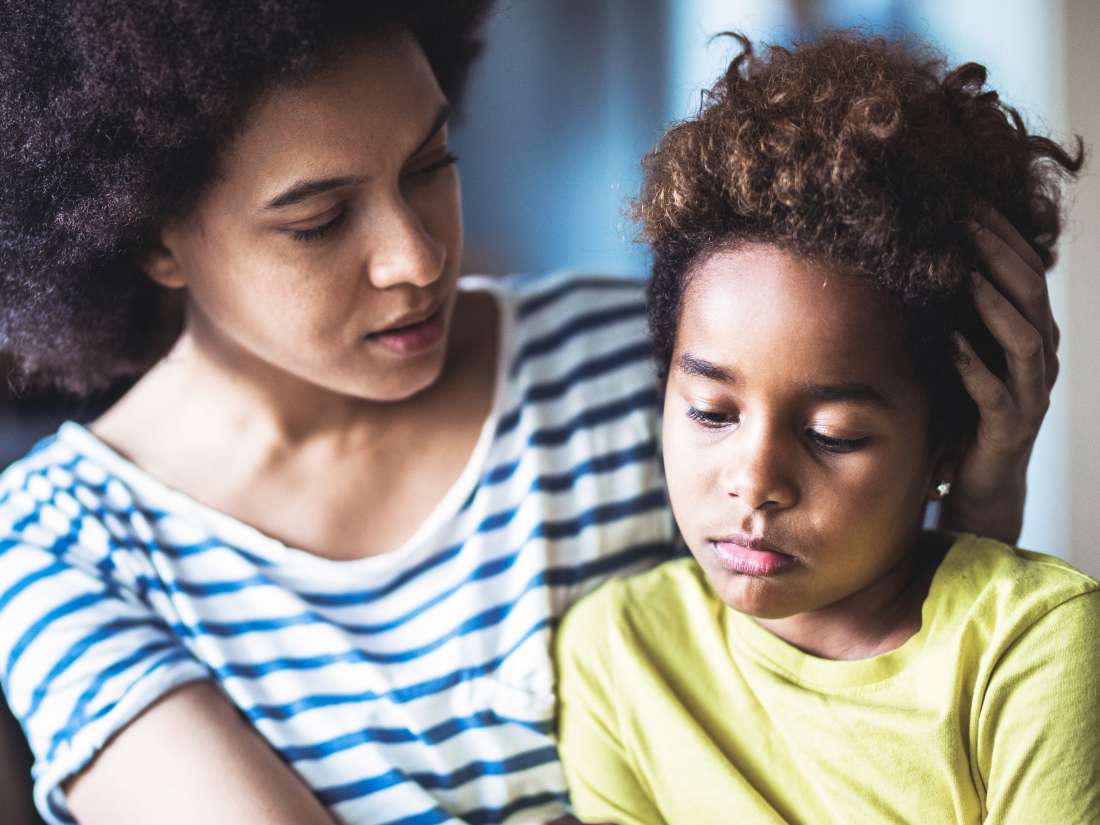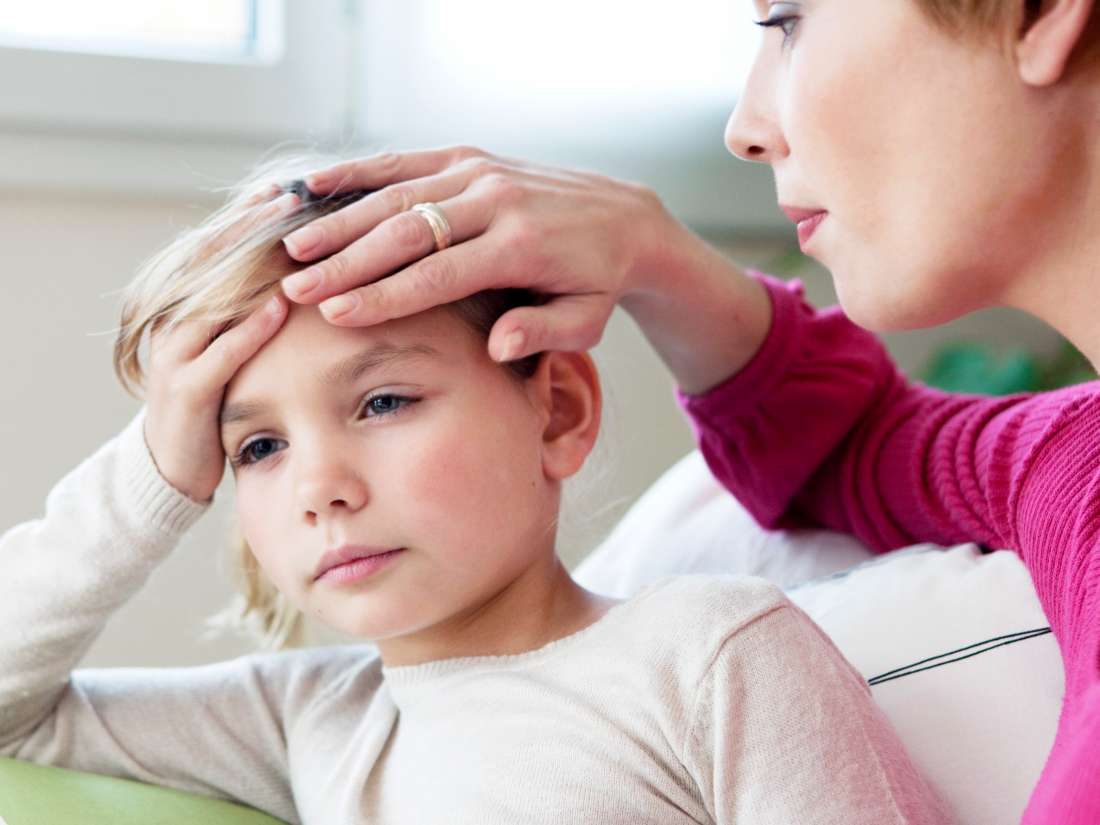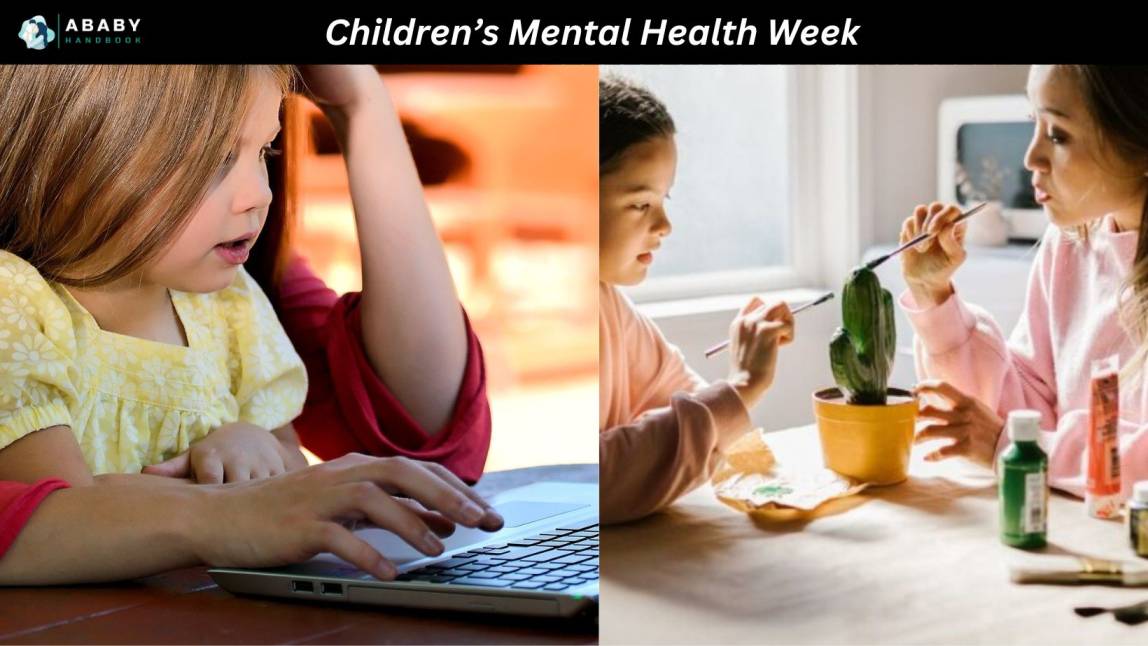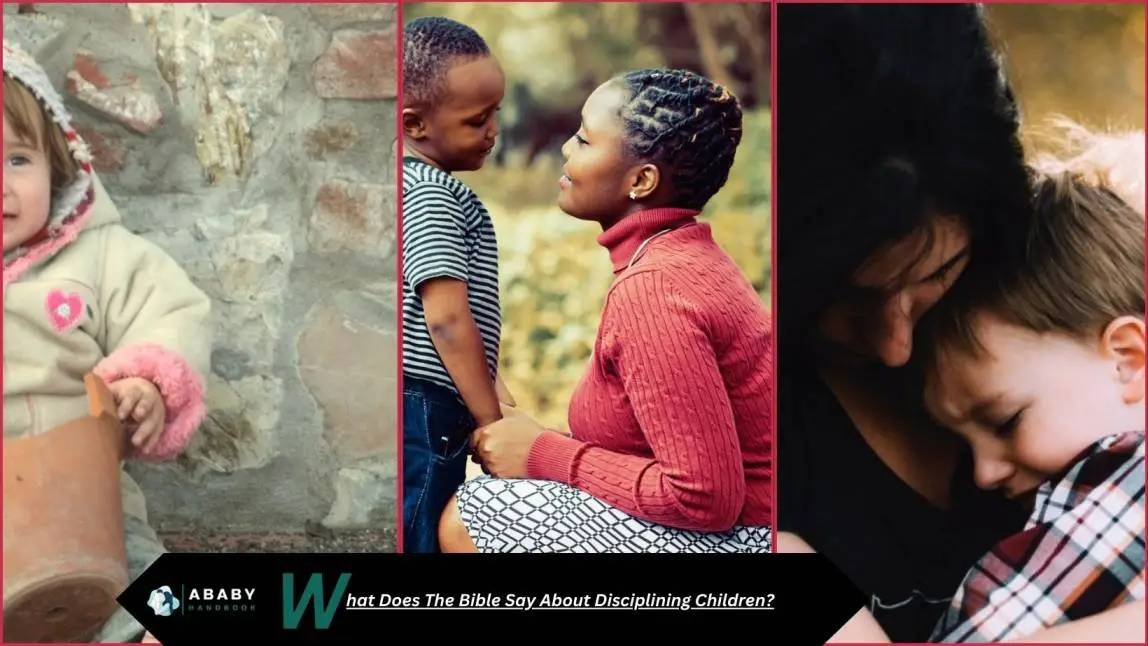Depression is more than just sadness and can be a serious and potentially life threatening illness. Even very young children can develop depression, so parents and caregivers must take the condition seriously. According to the Centers for Disease Control and Prevention (CDC), 3.2% of children aged between 3 and 17 in the United States have a depression diagnosis. This figure likely underestimates how common depression is among young people. A 2018 analysis emphasizes that depression is underdiagnosed in children and that just 50% of depressed teens receive a diagnosis before adulthood. The suicide rate has risen over the past 2 decades, including among children. It is vital to note that the symptoms of depression are also highly treatable, especially when a child has adequate support from loving caregivers.
In this article, learn more about depression in children, including the signs, symptoms, and how to find help.
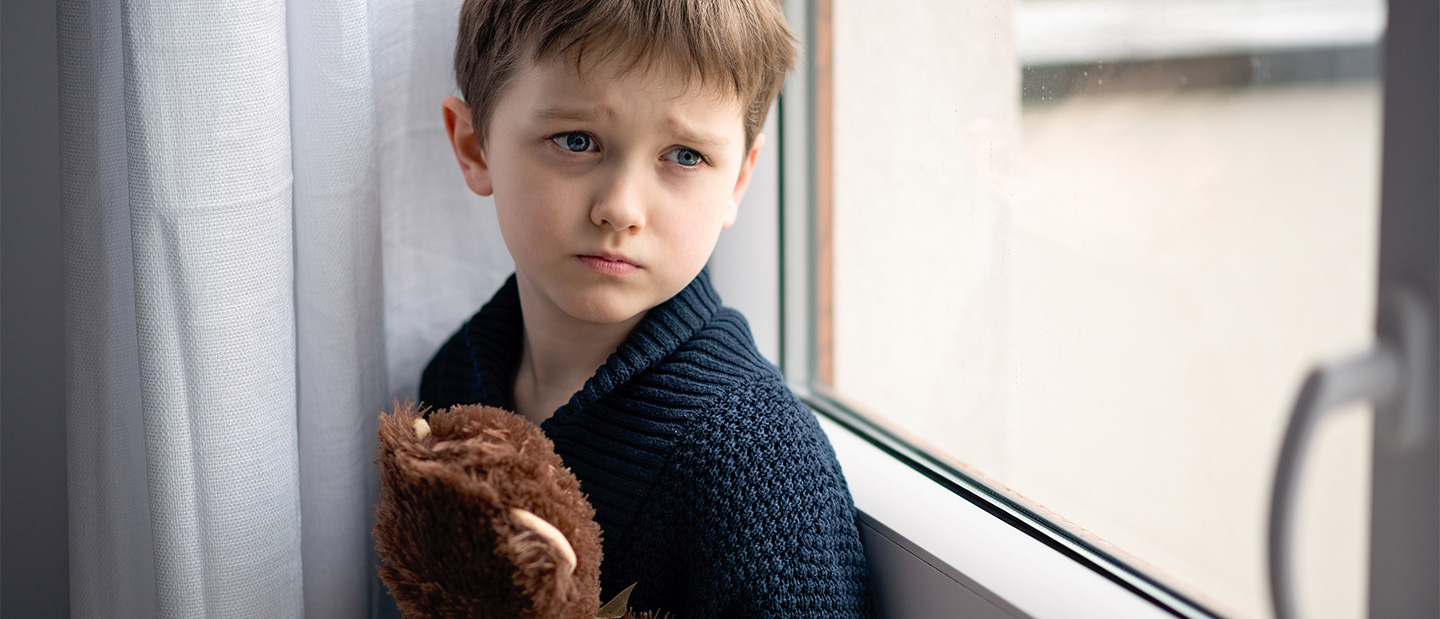
Withdrawal and low motivation are common symptoms of childhood depression. Children with depression may feel sad or hopeless. Depression, however, is much more than just sadness. It can affect many aspects of a child's behavior or mood. Young children may complain of physical symptoms, such as frequent stomachaches, instead of emotional pain. They may also fear separation from their parents, develop behavioral problems, or seem agitated and restless.
Some other symptoms of childhood depression include:
- loss of interest in activities a child once enjoyed
- withdrawal
- low motivation
- changes in sleeping habits, such as sleeping very little or too much
- eating habit changes, such as overeating or not eating enough
- running away
- having thoughts of or talking about suicide
- interest in death
- giving things away
- feeling hopeless
- low self-esteem
- trouble concentrating
- new or worsening problems at school, with siblings or friends
- use of alcohol or drugs, especially among teens
Depression is a complex illness with biological, psychological, and social causes. This means that many factors contribute to depression, including:
- genetics
- alterations in brain chemistry
- personality
- environmental factors, such as trauma and stress
The chance of depression is highest in children who have several risk factors.
Some risk factors for depression in children include:
- being female when considering teens
- family history of depression
- being born to a mother younger than 18 years old
- history of stress or trauma, including conflict between the child's parents or caregivers
- sleep issues
- medical problems, especially chronic illnesses, such as asthma
- overweight or obesity
- lack of coping skills
- negative thinking style
- self-consciousness
- poor relationships with friends
- school difficulties
- recent loss, such as changing schools or the death of a loved one
- low birth weight
There is no way to predict who will or will not experience depression. Some children with many risk factors never develop depression, while others with few or no apparent risk factors do. No blood or imaging test can detect depression. Instead, a mental health professional, for example, a psychiatrist, therapist, or social worker, will ask about the child's symptoms and behavior. Looking at the child's symptoms, the doctor will determine whether they have depression, another mental health condition, or both. Caregivers can help a doctor make a diagnosis by keeping a list of symptoms. They should be prepared to answer questions about the child's history, when symptoms first appeared, and whether there is a family history of depression. The provider may want to meet with the child alone because some children, especially teens, may not feel comfortable discussing all of their symptoms in front of others. The treatment for depression may include therapy, medication, lifestyle changes, and family counseling. Many people need to try several treatment strategies before they find one that works for them. It is helpful to ensure the child receives therapy and comprehensive mental health support in addition to medication or other treatments to ensure they get the best results.
A doctor may recommend:
- family counseling if there are family problems or a history of trauma.
- education about depression and how best to help.
- antidepressant medications.
- increased activity, since some people get relief from depression with exercise.
- individual therapy to help the child better manage their emotions and stress.
- Effective treatment should avoid stigmatizing the child or punishing them for behaviors that come from depression.
- Parents and caregivers may worry that they caused the child's depression or believe that they can cure it with love or discipline. Depression is a complex illness and rarely has one cause.
- A loved one cannot cure a child's depression, just as they cannot cure a physical condition, for example, diabetes. Instead, parents should focus on building a supportive environment in which the child can recover.
People may want to try these strategies:
- Include the child as an active participant in their treatment. Encourage them to participate in making decisions as much as possible.
- Ask the child about any side effects of their medication and work with them to find treatments that are effective.
- Encourage the child to talk about their feelings and listen without judgment. Do not tell the child how they should feel.
- Create a home life that is as stable and secure as possible. Minimize conflict between adults and other family members, and work to help the child manage recent traumas.
- Educate other family members about depression so that they can offer support and help.
For advice on supporting a teen with depression, click here.
Parents sometimes mistakenly believe that any sign of mental distress in children means the child has depression. Pediatricians and other doctors may even miss the signs of other mental health conditions. In some cases, symptoms of one disorder may mimic those of depression. For example, a child with attention deficit hyperactivity disorder (ADHD) who struggles at school may appear to be feeling hopeless and sad.
Some other conditions that may have similar symptoms to depression in children include:
- ADHD: This common diagnosis affects at least 9.4% of children in the U.S. Children with ADHD may have trouble concentrating, listening, remembering tasks, and controlling their behavior. Some also develop anxiety or depression.
- Anxiety disorders: Anxiety is more common than depression, with 7.4% of children having received a diagnosis for an anxiety-related condition.
Certain mental health and behavioral conditions commonly co-occur with depression. According to the CDC, 73.8% of children with depression also have anxiety, while 47.2% also experience behavior problems. Children with depression need support and care. Caregivers should remember that the issue is medical in nature, and it is not something that can resolve with discipline. Very young children may lack the ability to communicate their emotions. On the other hand, older children may feel embarrassed or worry about getting into trouble. Adults can help children get the right treatment while reassuring them that depression is treatable and not a personal failing. A pediatric mental health expert can be a valuable resource for the entire family.


